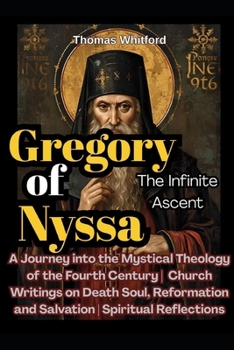Gregory of Nyssa: The Infinite Ascent: A Journey into the Mystical Theology of the Fourth Century Church Writings on Death Soul, Reformation and Salva
To understand the fire that forged a saint, one must first step into the world of his family-a family so extraordinary in its piety and intellectual force that it would be known to history as "a whole family of saints." This was not a gentle, sentimental holiness. It was a holiness forged in persecution, tempered by exile, and dedicated with a fierce, uncompromising zeal to the transformation of the world into the Kingdom of God. Gregory of Nyssa did not simply have a family; he was born into a living, breathing seminary.
His inheritance was a triple-stranded cord of faith: from his grandmother, Macrina the Elder, a disciple of great Church fathers and a survivor of imperial persecutions, he received the rugged, enduring faith of the martyrs. From his father, Basil the Elder, a renowned rhetorician, he inherited the tools of intellect and classical learning, mastering the language of Plato and Homer. From his mother, Emmelia, the daughter of a martyr, he learned the profound virtues of daily devotion, charity, and the heart of a faith that could rule a vast estate and raise ten children-five of whom would be canonized saints.
Within this hothouse of holiness, two formidable figures would define Gregory's path: his eldest brother, Basil, later "the Great," a brilliant, ambitious force of nature destined to become a prince of the Church; and his eldest sister, Macrina the Younger, a spiritual prodigy and ascetic visionary who would become his most profound theological mentor.
This is the story of how the seemingly least likely son of this remarkable family-the contemplative, gentle thinker overshadowed by his siblings' colossal legacies-emerged from their shadows to become the most mystical and surprisingly modern theologian of his age. This is the story of Gregory of Nyssa: the forgotten genius, the prince of mystics, and the saint who dared to describe the soul's eternal ascent into the infinite darkness of God.





